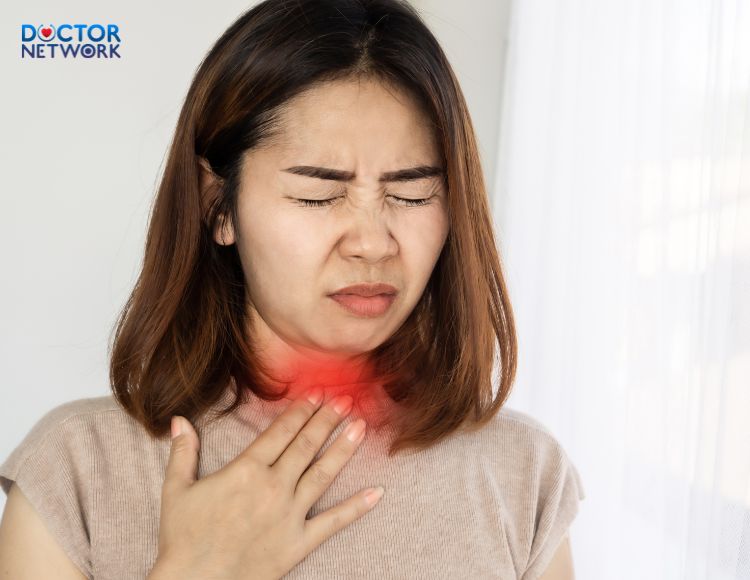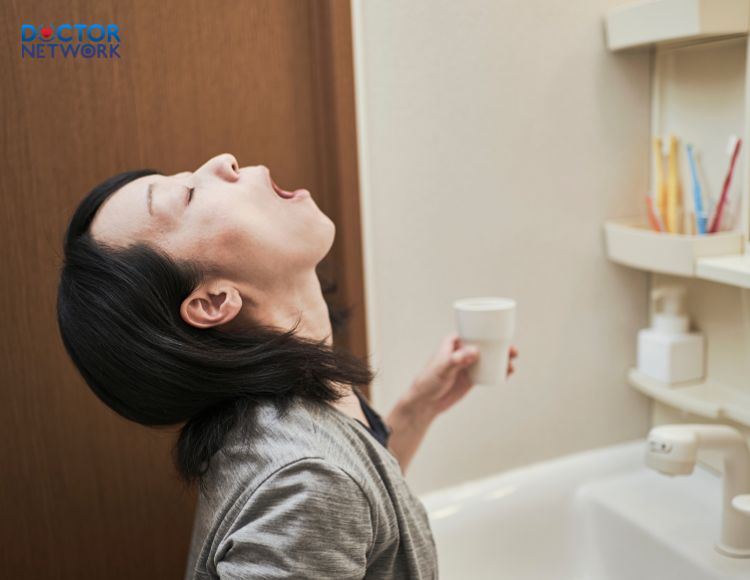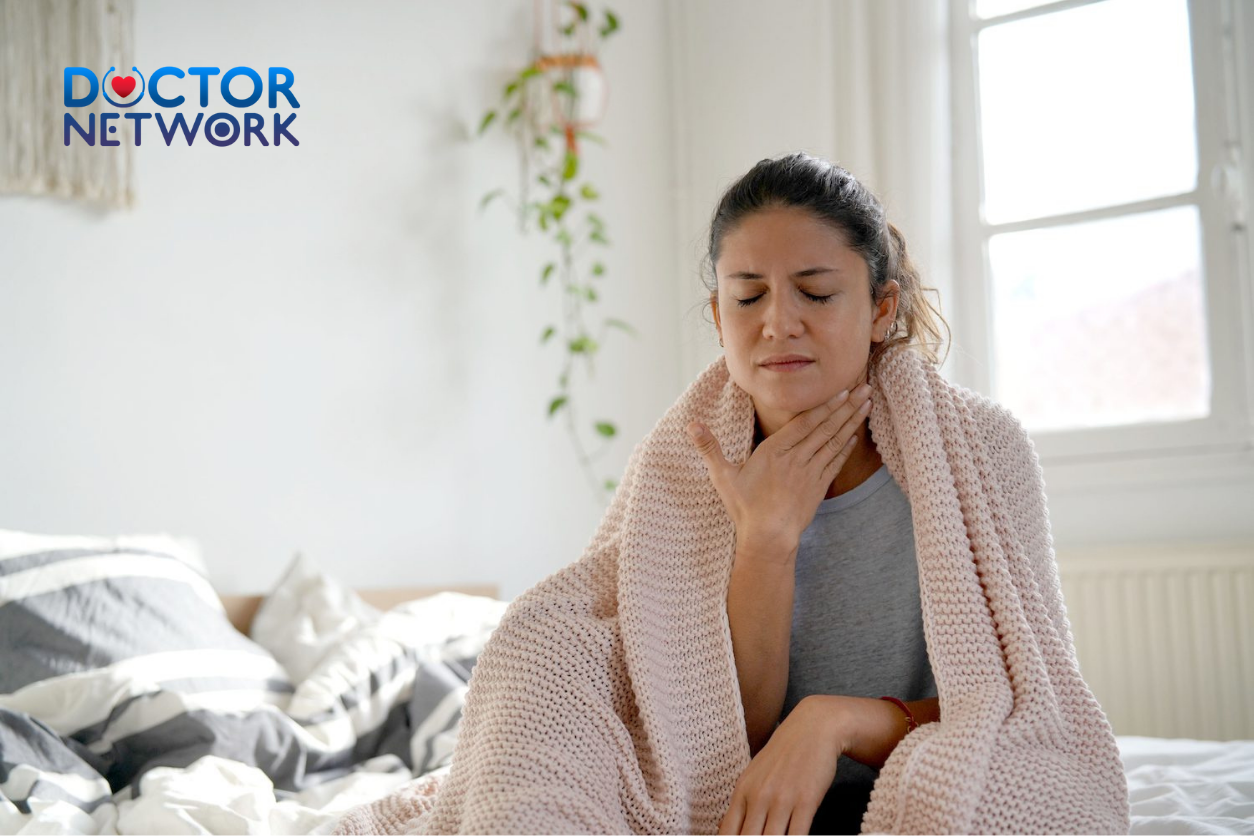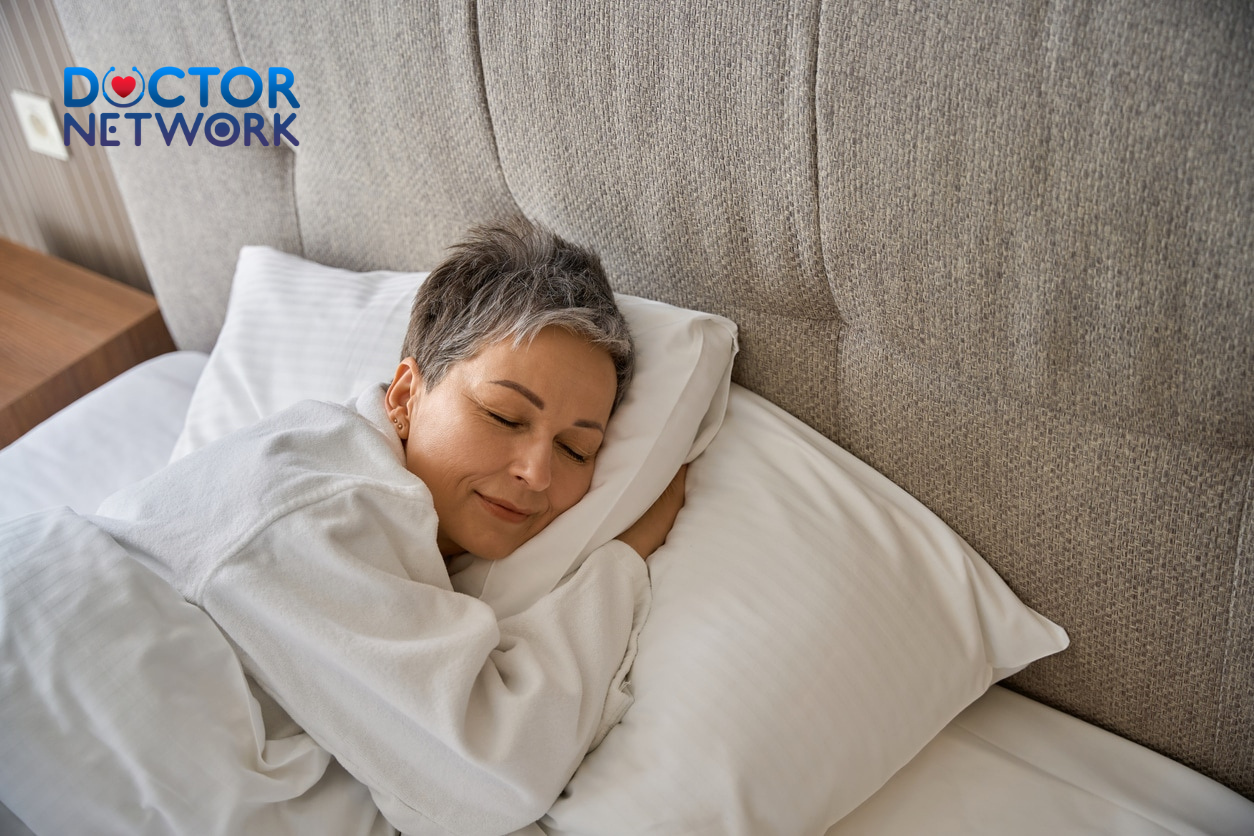Throat itchiness and coughing at night are not only uncomfortable experiences but also significantly affect sleep quality and overall health. Are you aware of the causes and treatments for Throat Itchiness and Nighttime Coughing and coughing? If not, let’s explore further in this article!
Overview of Throat Itchiness and Nighttime Coughing
Basic Definition: Nighttime Throat Itchiness and Coughing
Throat itchiness and coughing at night is a common health condition experienced by many, especially during rest periods. This condition affects not just sleep but also causes daily inconveniences. It often comes with discomfort, an increase in coughing or itchiness in the throat area, particularly when lying down to sleep.
Importance of the Issue
Nighttime throat itchiness and coughing are not just issues that reduce sleep quality but also affect daily life quality. Those suffering from this condition often face fatigue due to inadequate sleep and discomfort in daily activities. Understanding the causes and treatments can improve not just sleep but also life quality, which is crucial for overall health and daily performance.
Causes of Nighttime Throat Itchiness and Coughing
Throat Infection and Coughing
Symptoms and Causes: Nighttime throat itchiness and coughing are often the result of throat infections, a common condition caused by bacterial or viral attacks. Symptoms include an itchy, irritated feeling and coughing, especially when lying down to sleep. The infection can originate from various sources, including colds, exposure to sick individuals, or polluted environments.

An itchy throat and nighttime cough are often the result of a throat infection
Treatment Methods:
- For bacterial infections, antibiotics can be an effective treatment.
- Pain relievers and anti-inflammatory medications can help reduce throat itchiness and irritation.
- Humidifying the throat through the use of humidifiers or drinking plenty of water is also an important supportive measure.
Allergies and Irritation
Effects of Allergies: Allergies play a significant role in exacerbating throat itchiness and coughing at night. Allergens such as pollen, house dust, or mold can irritate the body, especially at night when lying down.
Methods to Reduce Allergen Exposure:
- Limit exposure to allergens by keeping the home clean, regularly dusting, and minimizing the use of home decorations that can harbor dust or mold.
- Using air purifiers in the bedroom can help reduce airborne allergens.
- Taking allergy reduction measures, such as allergy medications as directed by a doctor, can be beneficial.
Recognizing and managing these causes can improve sleep quality and reduce throat itchiness and nighttime coughing, offering comfort and overall health.
Dry Throat
Cause: Dry Environment and Its Effects on the Throat
A dry environment can be a major cause of throat itchiness and nighttime coughing. When the surrounding air is too dry, it can absorb moisture from the throat’s mucous membranes, causing them to dry out and become itchy.
Treatment Methods: Keeping the Throat Moist
- Using a Humidifier: A humidifier is an effective solution to maintain humidity. Using this device in the bedroom can help alleviate dryness and throat itchiness at night.
- Maintaining Adequate Hydration: Drinking enough water is crucial for keeping the throat moist. Ensuring adequate hydration helps reduce dryness and coughing.
- Using Throat Moisturizers: Throat moisturizers can be applied directly to the throat to maintain moisture and reduce itchiness. Oils such as flaxseed or coconut oil are often used and provide positive effects.
Applying these measures helps protect the throat’s mucous membrane from dry environmental effects, thus reducing itchiness and coughing at night. Additionally, maintaining adequate hydration and using moisturizers play a significant role in throat care and discomfort reduction.
Symptoms and Effects on Sleep Quality
Continuous Nighttime Coughing
- Impact of Nighttime Coughing on Sleep Quality
Nighttime coughing is not just an uncomfortable symptom but also significantly impacts sleep quality. Continuous interruptions caused by coughing not only create a restless sleep environment but also disrupt the sleep cycle, especially the deep sleep stages. This can lead to fatigue and stress during the day.
- Various Symptoms of Nighttime Coughing
Nighttime coughing can manifest in various forms, from mild and temporary to severe and prolonged. Common symptoms include a hoarse cough, sore throat, and sometimes fatigue. These symptoms can intensify in the evening, causing discomfort while trying to lie down and sleep.
When Should You Consult a Doctor?
Persistent and Severe Symptoms
When throat itchiness and nighttime coughing become persistent and severe, this could be a sign of a serious medical condition requiring specialized care. Symptoms that do not subside over a long period or become more uncomfortable should be evaluated and treated by a doctor.

You should see a doctor when itchy throat and nighttime cough become prolonged and severe
Assessing Overall Health Condition
The doctor will conduct a comprehensive examination of the overall health condition to determine the root cause of the throat itchiness and nighttime coughing. This includes discussing the medical history, examining the throat and ears, and possibly requesting additional tests if necessary.
Treatment and Medical Care
Treatment Methods for Throat Inflammation and Sore Throat
After identifying the cause of the throat itchiness and nighttime coughing, the doctor may suggest appropriate treatment methods. For cases of throat inflammation, the use of antibiotics may be considered if there is an infection. Additionally, the use of saline for gargling or throat sprays containing antibacterial ingredients can be effective methods.

Warm salt water can help soothe and reduce swelling quickly
Ways to Reduce Nighttime Coughing Symptoms
To reduce nighttime coughing symptoms, the doctor may recommend measures such as using suitable cough suppressants, adjusting sleeping habits, and creating better sleeping conditions by maintaining humidity in the room and using a high pillow for comfortable lying down.
Natural Methods and Self-Care
How to Reduce Throat Itchiness
Using the Right Gargle Solution
Using a gargle solution is an effective natural method to reduce throat itchiness. Warm salt water can help soothe and reduce swelling quickly. The most suitable gargle solution will depend on the root cause of the throat itchiness, which may be salt water containing antibacterial ingredients or gargle solutions containing menthol for a cooling sensation.
Drinking Plenty of Water and Maintaining Room Humidity
Maintaining adequate water intake is important to reduce throat itchiness. Regular water consumption helps keep the throat’s mucous membranes moist, reducing irritation and itchiness. Additionally, ensuring that the living and working environment has sufficient humidity can help minimize itchiness and discomfort.
How to Reduce Nighttime Coughing
Adjusting Sleeping Habits
Sleeping habits can impact nighttime coughing symptoms. Creating a regular sleep schedule, ensuring adequate sleep hours, and avoiding habits that can stimulate coughing can help reduce symptoms. Limiting exposure to irritants such as tobacco and caffeine before bed is also an important measure.
Using a High Pillow and Ensuring Comfortable Lying Down
For those experiencing throat itchiness and nighttime coughing, using a high pillow can help reduce throat pressure and decrease the risk of coughing. Additionally, ensuring a comfortable sleeping environment, with adequate humidity and stable temperature, will support rest and reduce uncomfortable symptoms.
In summary, applying natural methods and self-care such as using the appropriate gargle solution, drinking enough water, adjusting sleeping habits, and using a high pillow can help reduce throat itchiness and nighttime coughing, bringing comfort and better sleep quality.
Relevant Research
Scientific studies have indicated that nighttime throat itchiness and coughing can significantly impact the quality of life. Nighttime throat itchiness and coughing can cause difficulty sleeping, fatigue, anxiety, and reduced concentration.
To treat nighttime throat itchiness and coughing, it is necessary to identify the cause. If the cause is an infection, doctors may prescribe antibiotics or antiviral medications. If the cause is allergies, doctors may prescribe antihistamines or corticosteroid nasal sprays. If the cause is GERD, doctors may prescribe proton pump inhibitors (PPIs) or H2 antihistamines. If the cause is asthma, doctors may prescribe bronchodilators.
The above article has provided information on “nighttime throat itchiness and coughing” and related knowledge. We hope this article will be useful to you.
References:
Cough at night with itchy throat, headache warning what disease?vinmec·1
What is a prolonged itchy neck cough?vinmec·2
How To Get Rid Of Itchy Throat At Night – Aims Healthcareaimshealthcare·3
Kiểm Duyệt Nội Dung
More than 10 years of marketing communications experience in the medical and health field.
Successfully deployed marketing communication activities, content development and social networking channels for hospital partners, clinics, doctors and medical professionals across the country.
More than 6 years of experience in organizing and producing leading prestigious medical programs in Vietnam, in collaboration with Ho Chi Minh City Television (HTV). Typical programs include Nhật Ký Blouse Trắng, Bác Sĩ Nói Gì, Alo Bác Sĩ Nghe, Nhật Ký Hạnh Phúc, Vui Khỏe Cùng Con, Bác Sỹ Mẹ, v.v.
Comprehensive cooperation with hundreds of hospitals and clinics, thousands of doctors and medical experts to join hands in building a medical content and service platform on the Doctor Network application.


























